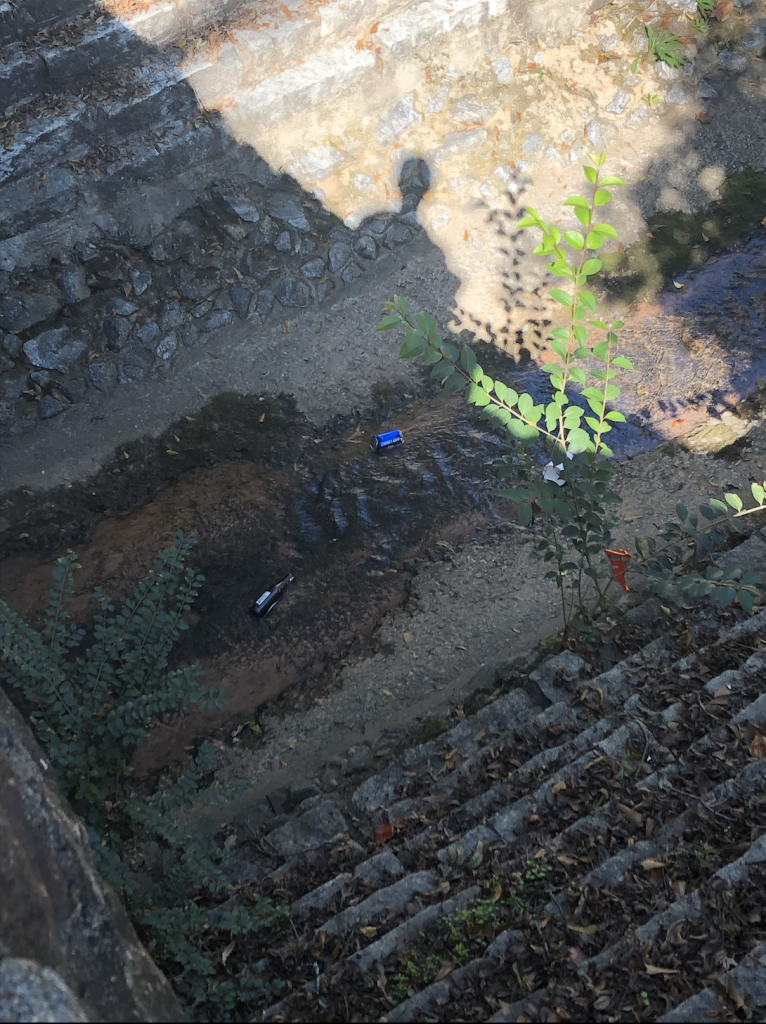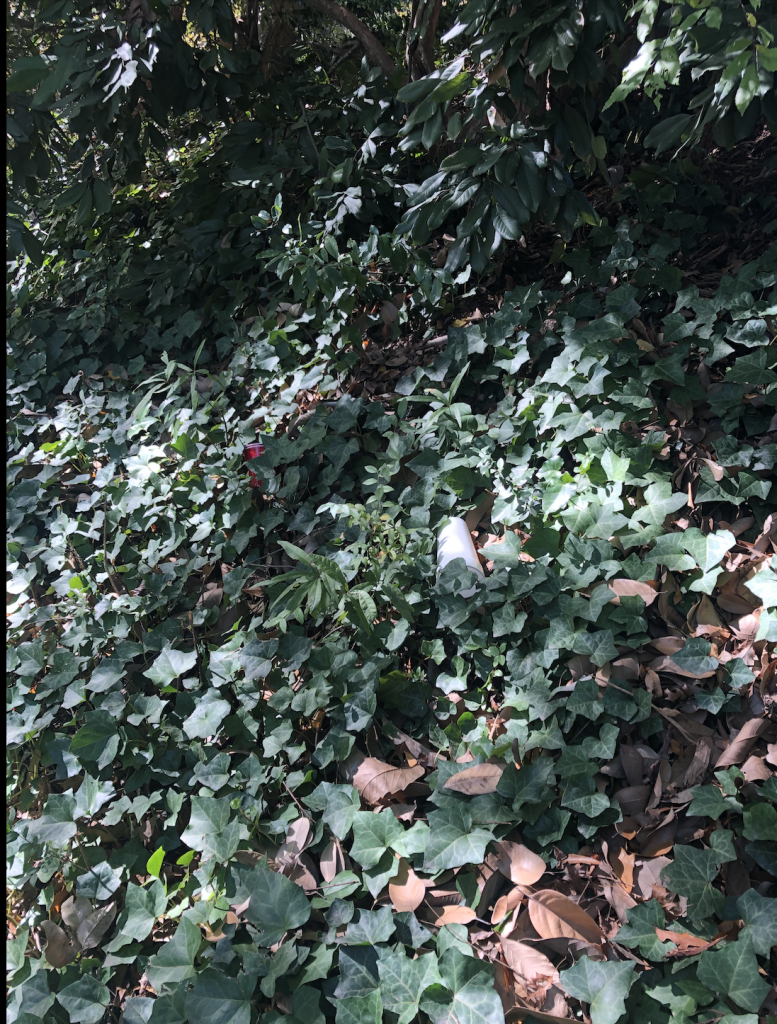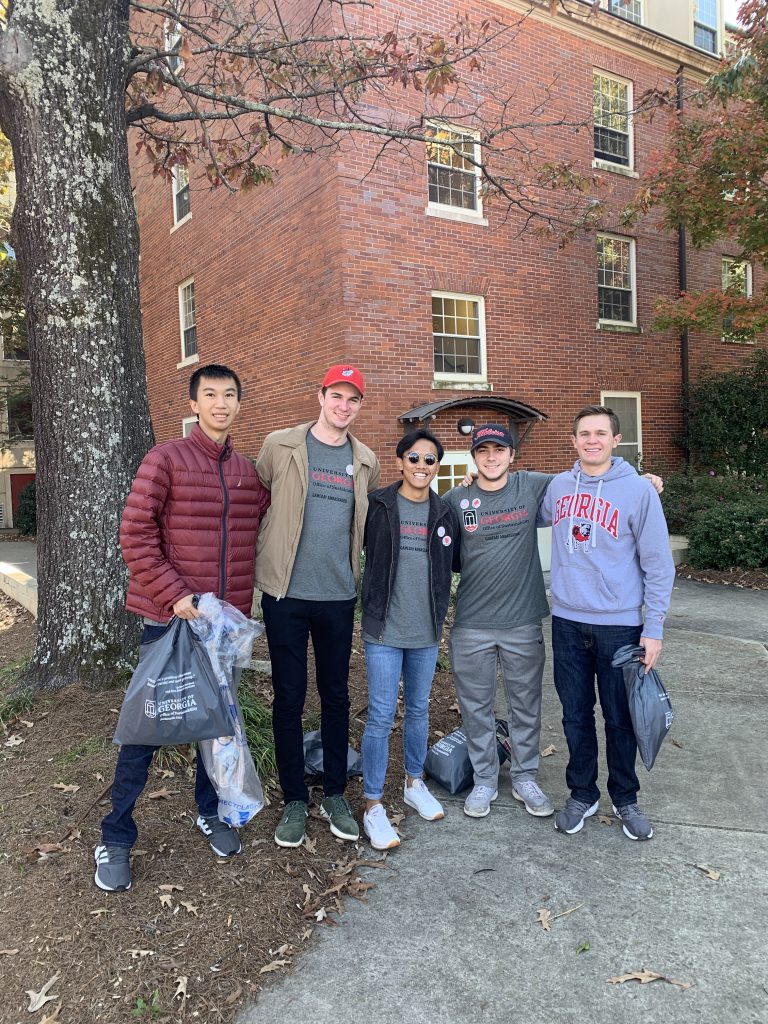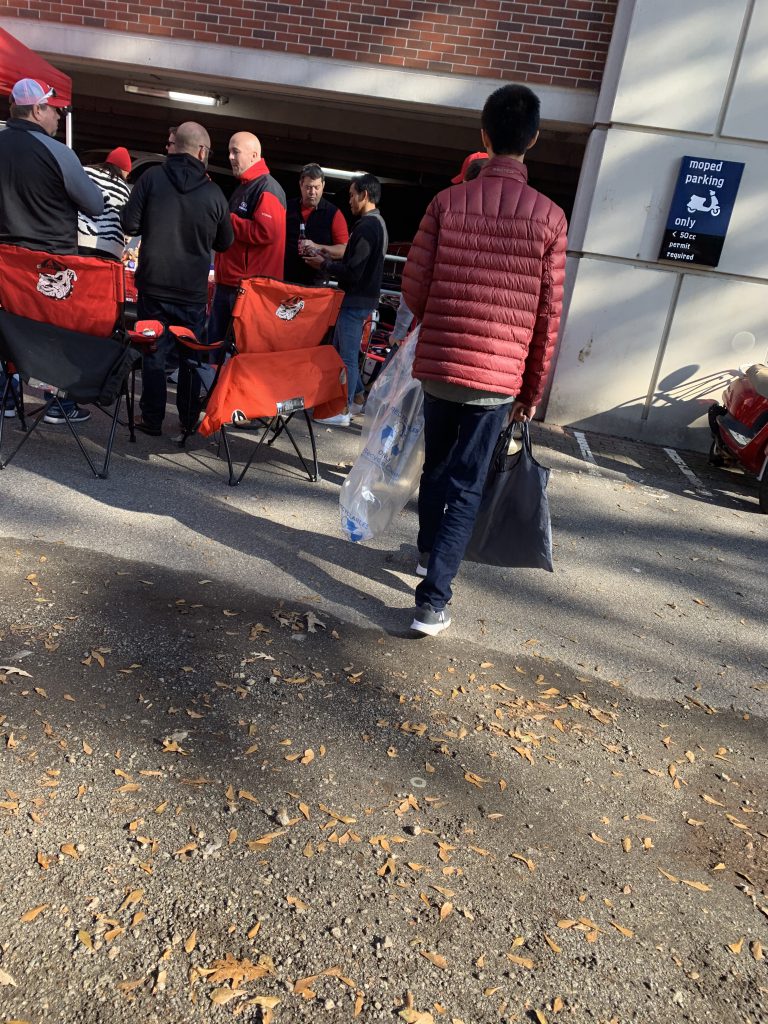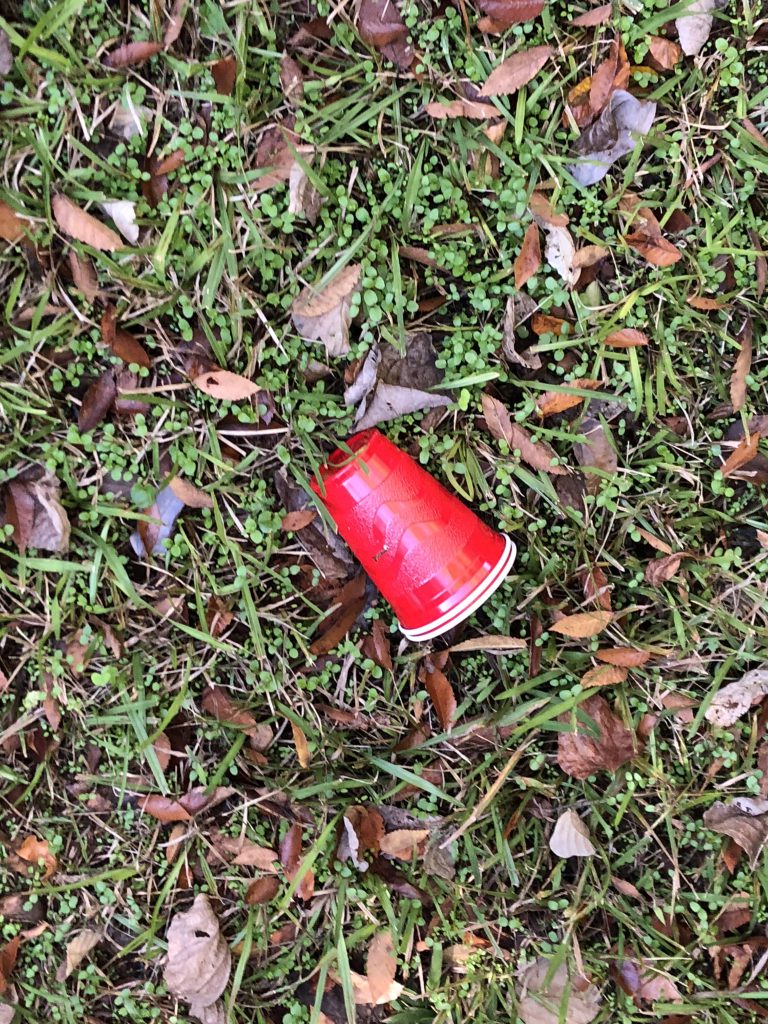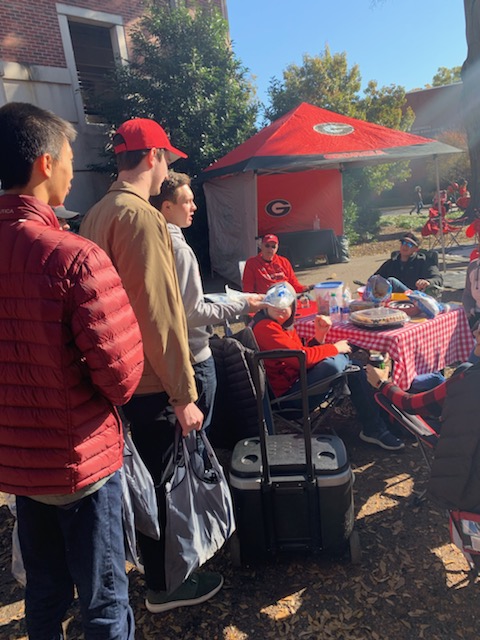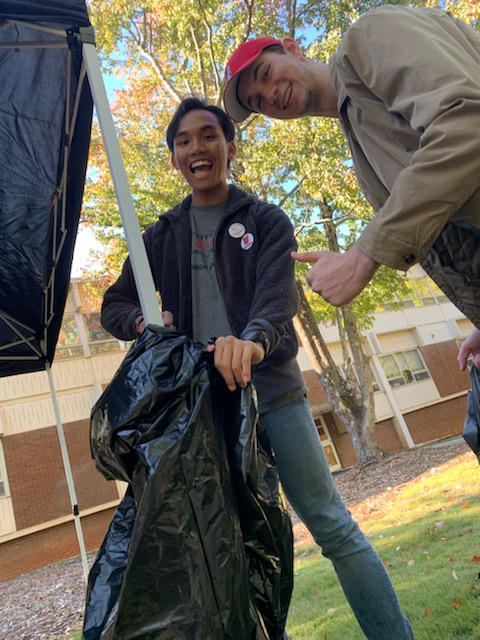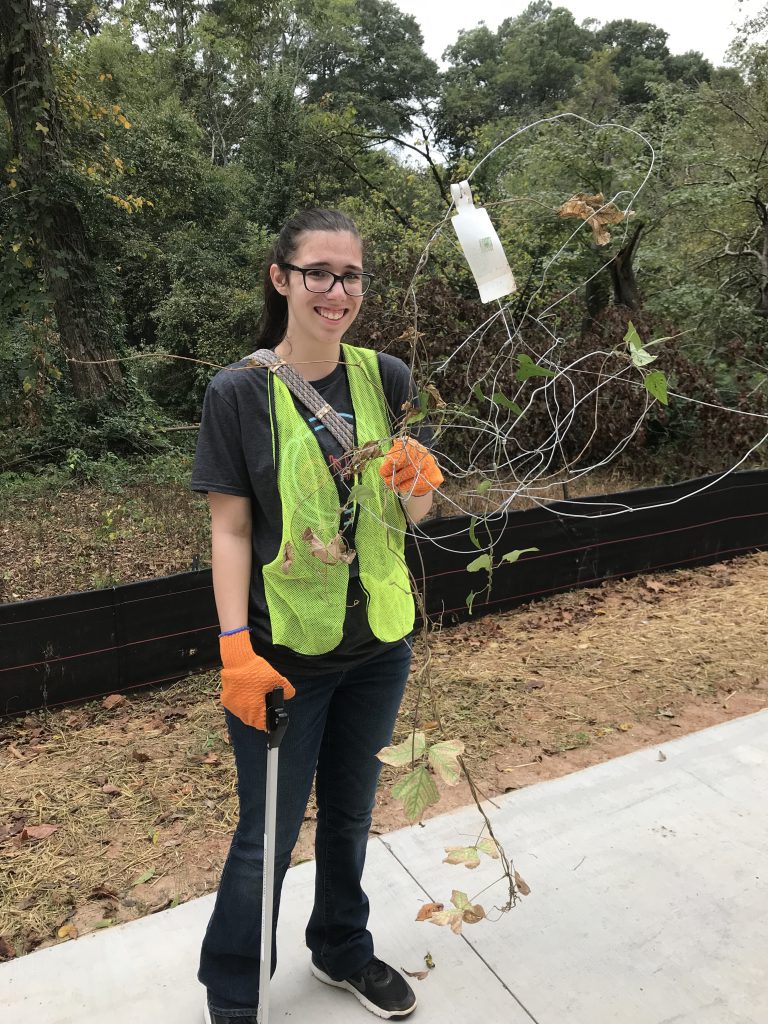
I did the River’s Alive Cleanup for my outreach project. Specifically, I worked at the MLK Greenway helping clean up the riverbank. There we searched for trash and materials that shouldn’t be near waterways. I went with a few of my classmates and we worked in pairs to find and bag the trash.
I was pleasantly surprised by how small the amount of rubbish we found was. That is not to say that there was nothing to find; there were still bags and bags of garbage but having been around other similar rivers I could really see the difference that Rivers Alive has made in the years it has been working on the banks. It was especially obvious as there was a private stretch of land in our area that we left alone which clearly had significantly more debris in the wooded areas. While we still found objects that frankly had no reason to be there, I could see the progress that had been made and was really proud of the people who have been working toward improving our river.
I think experiencing the process of cleaning up such important areas is useful for everyone in that it makes our effects on the environment easier to understand. I do not think that the experience required any special skills or knowledge, though I found having some personal experience in the woods helpful. While I did not run into any poison ivy or snakes, I found that being prepared for such situations helped put me at ease so I would suggest others have some short teachings on such things as well.
I found that I enjoyed the experience more than I expected and may consider doing it again in the future. The people who were in charge were really nice and appreciated everyone’s help regardless of skill level. I had the chance to speak with one of the men who had participated in Rivers Alive many times before and he told me about how in the 70s people used to use their trash to build up embankments, not knowing any better. I found this fascinating as I have never understood before how so much garbage ever began to accumulate by these rivers. In the future regardless of whether I am able to help with cleanup again, I plan to support the efforts of River Alive and encourage others to do the same and take care of the planet we have.

